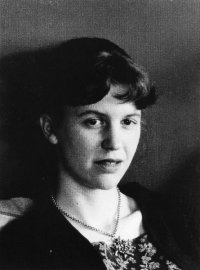
SYLVIA PLATH (1932- 1963) Born to middle class parents in
Jamaica Plain, Massachusetts, Sylvia Plath published her first poem when she
was eight. Sensitive, intelligent, compelled toward perfection in everything
she attempted, she was, on the surface, a model daughter, popular in school,
earning straight A's, winning the best prizes. By the time she entered Smith
College on a scholarship in 1950 she already had an impressive list of
publications, and while at Smith she wrote over four hundred poems. Sylvia's
surface perfection was however underlain by grave personal discontinuities,
some of which doubtless had their origin in the death of her father (he was a
college professor and an expert on bees) when she was eight. During the summer
following her junior year at Smith, having returned from a stay in New York
City where she had been a student ``guest editor'' at Mademoiselle Magazine,
Sylvia nearly succeeded in killing herself by swallowing sleeping pills. She
later described this experience in an autobiographical novel, The Bell Jar,
published in 1963. After a period of recovery involving electroshock and
psychotherapy Sylvia resumed her pursuit of academic and literary success,
graduating from Smith summa cum laude in 1955 and winning a Fulbright
scholarship to study at Cambridge, England. In 1956 she married the English
poet Ted Hughes , and in 1960, when she was 28, her
first book, The Colossus, was published in England. The poems in this
book---formally precise, well wrought---show clearly the dedication with which
Sylvia had served her apprenticeship; yet they give only glimpses of what was
to come in the poems she would begin writing early in 1961. She and Ted Hughes
settled for a while in an English country village in Devon, but less than two
years after the birth of their first child the marriage broke apart. The winter
of 1962-63, one of the coldest in centuries, found Sylvia living in a small
London flat, now with two children, ill with flu and low on money. The hardness
of her life seemed to increase her need to write, and she often worked between
four and eight in the morning, before the children woke, sometimes finishing a
poem a day. In these last poems it is as if some deeper, powerful self has
grabbed control; death is given a cruel physical allure and psychic pain
becomes almost tactile. On February 11, 1963, Sylvia Plath killed herself with
cooking gas at the age of 30. Two years later Ariel, a collection of some of
her last poems, was published; this was followed by Crossing the Water and
Winter Trees in 1971, and, in 1981, The Collected Poems appeared, edited by Ted
Hughes.
(Download)
(Download)
(Download)
